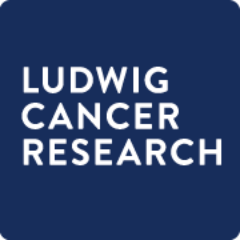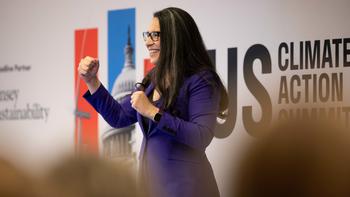
Image: Professor Leanne Robinson, co-leader of the STRIVE PNG project.
Today, on International Women’s Day, Burnet Institute is recognising the important work done by our women in STEM – Science, Technology, Engineering and Mathematics.
Burnet Gender Equity, Diversity and Inclusion (GEDI) Council chair, Professor Caroline Homer AO said the Institute was proud to have women from diverse backgrounds working across all three disciplines: life sciences, public health and international development.
“At Burnet, we are committed to gender equity and ensuring that women scientists are enabled, supported and celebrated,” Caroline said.
“Our recent Athena SWAN Bronze Award shows our commitment and we will continue to work hard to ensure that women at all levels can be inspired and supported.”
“The theme of International Women’s Day this year is about leadership and the critical value of gender equity in ensuring a better world. We have made progress but clearly there is more to do nationally and globally.
“The women of Burnet have provided incredible leadership through lockdown and working to respond to COVID-19 in Australia and across the world.”
This year we are looking at some of the women working on the STRIVE PNG Project, and how they are shaping the response to some of the world’s most pressing health challenges, including COVID-19.
Professor Leanne Robinson
Professor Leanne Robinson co-leads the STRIVE PNG and NATNAT projects and is an investigator on the PacMOSSI project – these are three major DFAT CHS-supported partnership-based consortiums seeking to strengthen surveillance and control of vector-borne diseases in Papua New Guinea (PNG) and the wider Pacific region.
Leanne and her collaborative team are implementing new surveillance tools at eight sentinel sites across the country. They aim to detect emerging infectious disease threats and respond to them quickly to reduce their impact. The project has a strong focus on embedding surveillance capacity within provincial disease control teams.
The projects that Leanne leads have adapted to the COVID-19 pandemic. Some facilities in the STRIVE network have expanded testing to capture cases of acute respiratory illnesses and capacity for serological testing to SARS-CoV-2 and other pathogens has been established at PNG Institute of Medical Research’s (PNGIMR) collaborative molecular hub in Port Moresby.
Leanne says COVID-19 has reinforced the importance of strengthening health systems against threats from newly emerging pathogens.
“It has highlighted how we can better support health workers through integrated approaches for disease surveillance – not only for diseases such as malaria, but to ensure early detection of the next emerging pathogen of global significance,” she said.

Image: Dulcie Lautu-Gamal says it’s important for women in STEM to build strong networks and encourage each other.
Dulcie Lautu-Gumal
After working in malaria research with the PNGIMR for nine years, Dulcie Lautu-Gumal commenced a PhD at Walter & Eliza Hall Institute of Medical Research and then moved to Burnet investigating molecular markers of antimalarial drug resistance in the PNG.
“These molecular markers or genetic signatures in parasites can help us identify distinct populations in PNG that could be at risk of antimalarial drug resistance, in my work I’m particularly interested in artemisinin resistance.
“Resistant malarial parasites have emerged and spread rapidly in Southeast Asia. These parasites are resistant to artemisinin combination therapy (ACT) which is the WHO-recommended treatment for uncomplicated malaria. It’s threatening to PNG because we are using artemisinin combination therapy and recently we’ve had reports identifying a particular mutant parasite in the county,” she said.
Because of this, it’s crucial that outbreaks of drug resistant strains are discovered and controlled quickly. Dulcie’s role in the STRIVE project is developing sensitive molecular assays that can detect resistant parasites which will be used in real-time surveillance.
Dulcie says working at Burnet is rewarding because she can translate her work from the lab into public health.
“My work takes me from designing these lab assays, to implementing them as diagnostic strategies for antimalarial drug resistance surveillance programs in public health. I’m proud that I get to see the whole thing,” she said.

Image: Rachael Farquhar (left) conducting partner interviews with Zebedee Kerry PNGIMR Health Systems Research Nurse, Zebedee Kerry (centre) and Research Nurse Naebo Oren (right) in East Cape, Milne Bay Province.
Rachel Farquhar
Rachael Farquhar’s role in the STRIVE PNG project looks at ways to better support some of PNG’s frontline health workers in disease notification, adherence and reporting. When the pandemic hit, Rachael and colleagues expanded their work to look at the impact that COVID-19 had on each of the health facilities, such as disruptions to service delivery, resourcing and patient flows through facilities.
“There’s definitely been disruption in services. We’ve been lucky in our work that the research nurses been able to re start activities fairly quickly after the initial shut downs, but in relation to service delivery for all disease areas they’ve felt the impact,” she said.
Last year Rachael and the team also conducted around 30 remote interviews with STRIVE PNG Partners to review the effectiveness and efficiency of the STRIVE partnership, and optimise the collaboration potential to ensure the partnership remained ‘fit for purpose’ for all 13 partner organisations’ differing circumstances.
“The partnership health checks were a really humbling experience but also rather rewarding as we have been able to take several actions to strengthen the projects partnership and support partner organisations, particularly during COVID-19, which is something I’m really proud of,” Rachael said.

Image: Dr Fiona Angrisano joined Burnet after returning to Australia from the UK and from maternity leave.
Dr Fiona Angrisano
Dr Fiona Angrisano returned to Australia from London in March 2020 and joined Burnet to work on the STRIVE PNG project. Within the project Fiona is developing a serological assay to look at the prevalence of a number of diseases within Papua New Guinea. Patients who present in a clinic can have their bloods taken and tested for pathogens with these assays.
This assay will assist in providing health authorities critical information about the prevalence of certain diseases in PNG’s regions, and helps them to deploy the necessary interventions to combat them.
These include malaria and other vector-borne diseases, vaccine preventable diseases, as well as neglected tropical diseases. But with the pandemic emerging as she joined Burnet, Fiona and the STRIVE team adapted the assay so they could detect where COVID-19 had spread through the country.
Fiona says she’s proud to be able to apply her work in-country and provide support to the team in PNG.
“I’ll never forget, a few months ago, when we finally got the machine up to Port Moresby and the staff up there did their first run. They sent us pictures of the run and we were all so excited,” she said.
Women supporting women in STEM
Professor Leanne Robinson said today should be a day of celebration and reflection.
“For me, International Women’s Day is a time to celebrate the achievements of women and girls around the globe and also meaningfully reflect on the challenges that remain in working towards gender equity and ensuring a safe and supportive future for everyone, irrespective of gender or ethnicity,” she said.
“There still remains a long way to go and the journey will require that everyone is willing to challenge structures and behaviours that are preventing this from becoming our shared reality.”
With more women growing into leadership roles in STEM, Fiona says she’s felt very supported by peers in juggling work and family life.
“Leanne was very supportive when I joined Burnet, coming back from London and from maternity leave. She’s a great mentor for women in general,” Fiona said.
“There’s never been a better time to to be a woman in STEM. It’s a great movement at the moment, and I think there’s a lot of opportunity. I feel very fortunate today.”
Dulcie sees the importance of being a role model to other girls in PNG, to encourage them to consider a career in STEM.
“For women it’s important for us to have continuous dialogue among ourselves. It supports us and motivates us, particularly in STEM where it’s male-dominated,” she said.
“Having a good network between other women is good. Never stop talking to other women and never stop encouraging.”
Rachael echoed Dulcie’s sentiments, adding that it’s important for younger women in STEM to reach out to a mentor, and for women further into their career to consider themselves a mentor to peers.
“Leanne was my mentor at uni, and she put out a limb for me to come to Burnet,” Rachael said.
“Reach out to researchers that you find inspiring and try to get to know them. Creating the network is what’s really helped me throughout the last two years,” she said.








